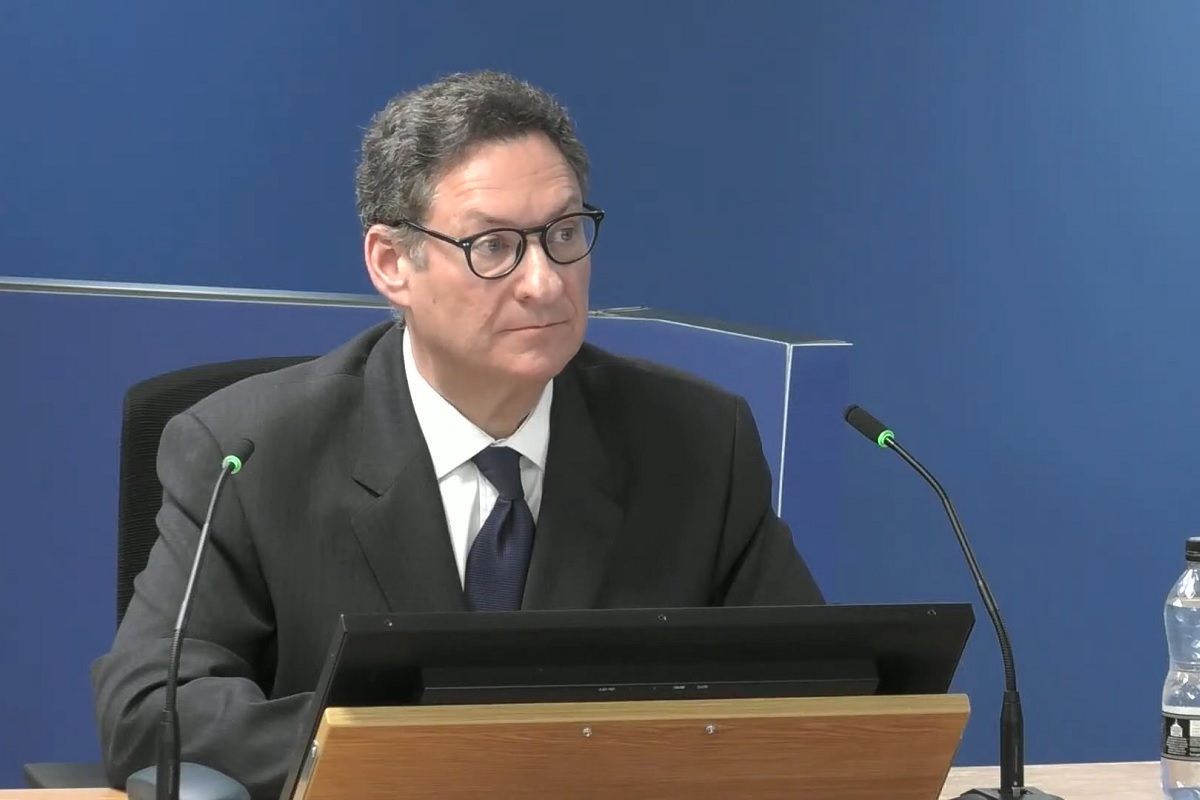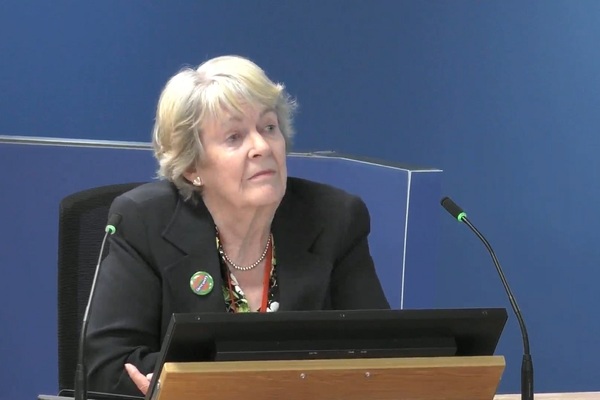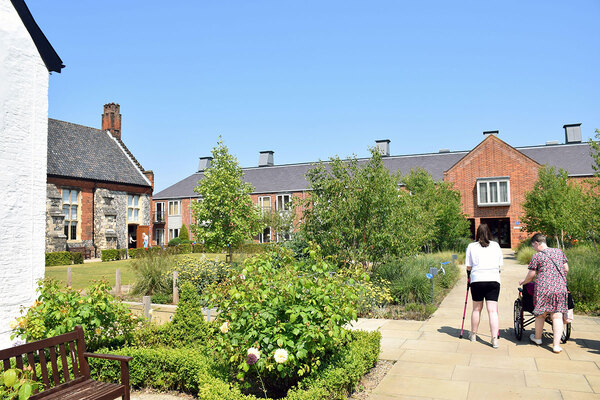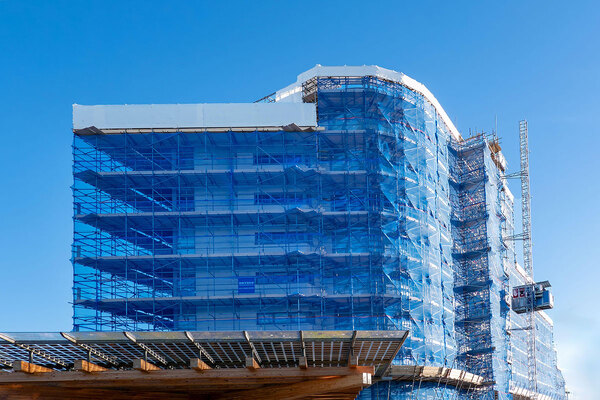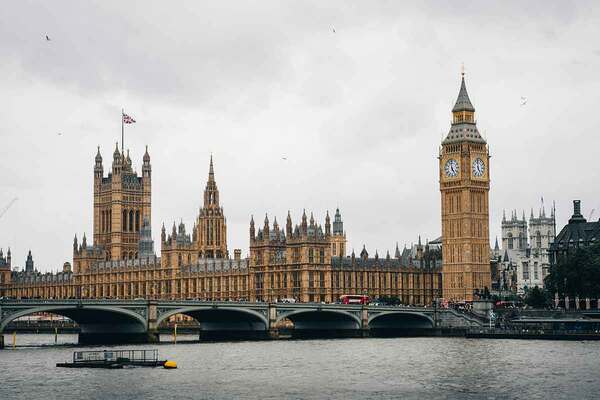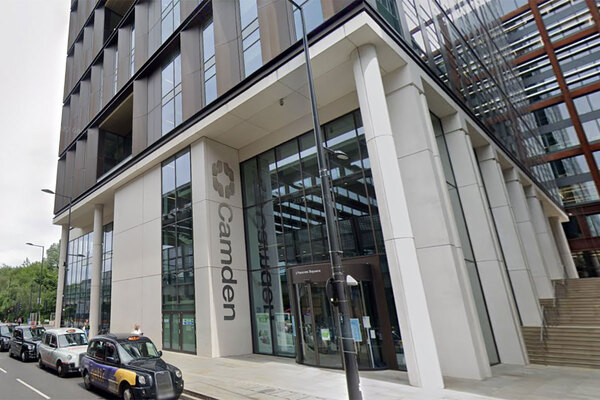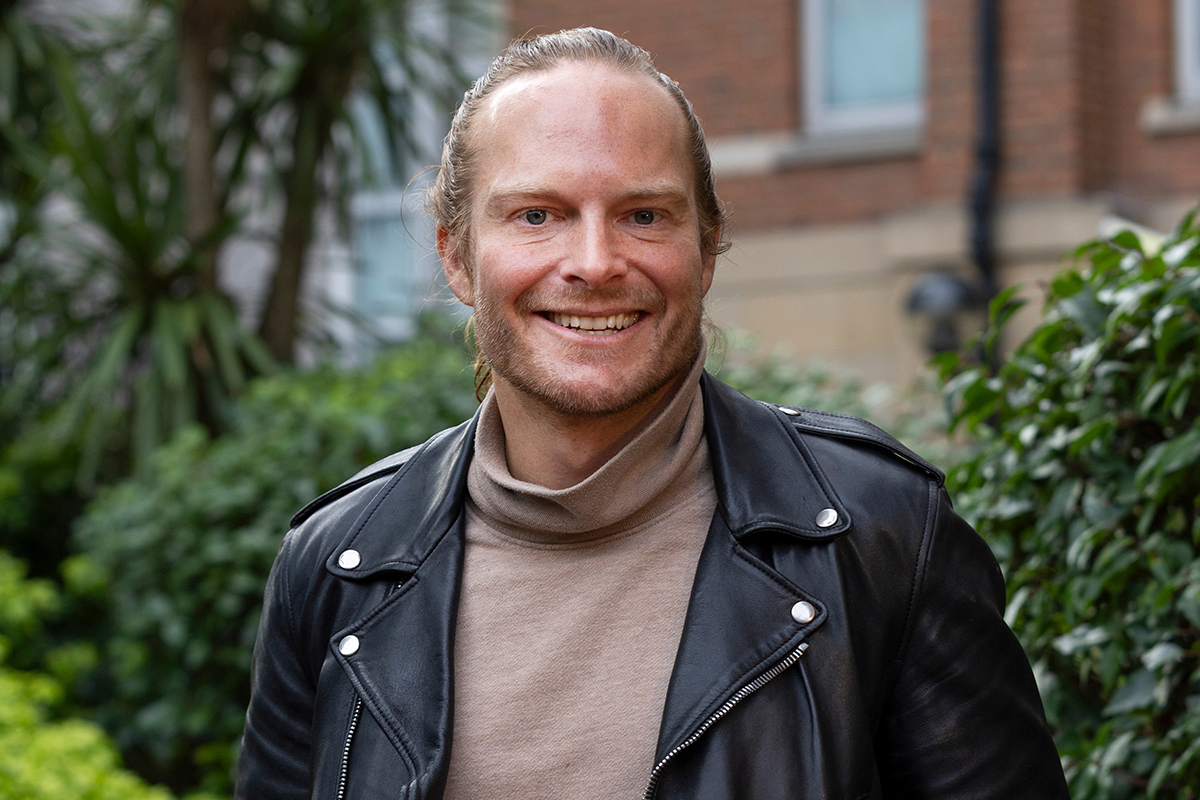RBKC housing director refused to discuss ‘non-issue’ of fire doors
The director of housing at the Royal Borough of Kensington and Chelsea (RBKC) criticised internal scrutiny of the standard of fire doors in the borough as a “non-issue” and said she would “refuse to open it up again” just weeks before the fire at Grenfell Tower.
The Grenfell Tower Inquiry today heard evidence from Sam Mackover, former chair of the Housing and Property Scrutiny Committee (HPSC), who raised questions about the quality of fire doors in May 2017 following a fire at Trellick Tower – another block owned by RBKC.
This followed a long process in which the council had sought to replace flat entrance doors throughout the borough and Mr Mackover expressed concern that there were still issues with doors at a meeting of the committee – asking for a report on the scale of the problem.
This triggered an email exchange between Robert Black, chief executive of Kensington and Chelsea Tenant Management Organisation (KCTMO), the company that managed the homes on behalf of the council, and Laura Johnson, director of housing at RBKC, on May 17 – exactly a month before the fire.
After Mr Black expressed concern that Mr Mackover had been “very negative about the TMO”, Ms Johnson replied: “In short Cllr Mackover knows nothing about this issue… We’ve been through this before and I refuse to open this up again as a subject for Cllr Pascal [another member of the scrutiny committee] to dwell on.”
“It’s a non-issue they are trying to turn into something because we’ve reported on it before,” she added.
In fact, the borough was facing questions from the London Fire Brigade (LFB) about missing self-closers on doors throughout its stock following a prior fire – and a deficiency notice had been served on Grenfell Tower, partly because of this issue.
Ms Johnson was aware of this and was pushing against proposals for ongoing monitoring of self-closers, as requested by the fire brigade.
Asked about the email today, Mr Mackover said: “That is surprising that she could say that because we spent so much time on the committee talking about doors. I don’t know what she could mean by that.”
He said he believed Ms Johnson was a “high quality officer” and called this email “a departure from that”.
Mr Mackover also expressed surprise that his committee was not informed of the deficiency notice covering Grenfell Tower.
The committee had previously also not been told of a deficiency notice impacting Adair Tower, which had been issued just two weeks before a major fire at that block.
“Is this the type of issue that you would have expected to have been reported to your committee, either by Miss Johnson or Mr Black?” asked Andrew Kinnier QC, counsel to the inquiry.
“Absolutely,” replied Mr Mackover.
Following his evidence, the inquiry heard extracts from more than 20 witness statements from residents of Grenfell Tower read into the record.
Several said that they were not given any information about what to do in the event of a fire, while others described the generally poor performance of the KCTMO repairs service.
Elizabeth Sobieszczak said she had lost faith with the repairs service to the extent that she relied on friends who were plumbers or maintenance people to fix issues in her flat.
Lucy Ho said it could take three weeks for a repairs person to attend, and issues were often still not fixed.
The inquiry has previously heard that the TMO had a repairs backlog that stretched to more than 5,000 incomplete jobs by the time that management was subsumed back into RBKC in December 2017.
External contractors Connaught and Morrison were said to have struggled, before the council established its own direct labour organisation in 2012, Repairs Direct, which also had difficulties staying on top of the workload.
Witness statements also described issues with the refurbishment works, which were called “shoddy”, and several instances of broken self-closers on fire doors being disconnected and never fixed.
The inquiry has previously established that the tower had an endemic issue with broken fire door self-closers – believed to have been a critical factor in the spread of smoke through the tower on the night of the fire.
One resident, Willie Thompson, also described his neighbour Edward Daffarn as an “advocate” for residents who did not want to raise complaints themselves.
“He would get points across much better than most of us,” he wrote.
“A number of residents would speak to Eddie about their problems as they probably felt he could raise them effectively and properly hold the TMO and RBKC to account.”
Later in the day, the inquiry took evidence from Judith Blakeman, a veteran Labour councillor at RBKC whose ward included Grenfell Tower.
Ms Blakeman was also a council-appointed board member at KCTMO from 2012 to 2018 and a member of the council’s HPSC between 2014 and 2019.
Asked about KCTMO’s independence from RBKC, she said that “in practice they produced a united front when challenged by anyone”.
In her written witness statement to the inquiry, she claimed she had felt that she was the only KCTMO board member speaking on residents’ behalf and said today that the organisation’s structure did not afford them a sufficient voice in decision-making.
She described becoming increasingly concerned about safety issues at Grenfell Tower during her time on the KCTMO board, sparked partly by a visit to the building’s basement, where she said she was “quite shocked” by the “pretty awful” conditions.
But she said she was given only “bland reassurances” when trying to raise the matter with the council and KCTMO executive team.
The inquiry heard that Ms Johnson had been reporting good progress to the HPSC on the programme to undertake fire risk assessments and replace non-compliant fire doors in the council’s housing stock in 2014 and 2015.
In September 2014, she told a committee meeting that there were only three leasehold flats where doors needed replacing across its 9,000 homes.
But in October 2015, the LFB issued KCTMO with the deficiency notice for Adair Tower discussed during this morning’s sitting, with its concerns including issues with fire doors and FRA actions not being implemented.
At a KCTMO board meeting the following month, chief executive Mr Black made no mention of the deficiency notice while discussing the fire, which had broken out at the tower just weeks after it was served.
During the next board meeting in January 2016, Mr Black revealed that KCTMO was about to be hit with enforcement notices for Adair Tower and nearby Hazlewood Tower following FRAs undertaken by the LFB, with fire doors again among the concerns.
Richard Millett QC, lead counsel to the inquiry, also questioned Ms Blakeman about her impression of the attitude of Grenfell Tower residents who repeatedly attempted to raise concerns about fire safety before June 2017.
Ms Blakeman was among several RBKC and KCTMO figures to be criticised on the Grenfell Action Group blog, shortly after telling resident Francis O’Connor that she would not respond to complaints “couched in tendentious, abusive, offensive or bullying terms”.
Asked to explain her comments today, she replied: “Sometimes Mr O’Connor and Mr Daffarn would come to our surgery and shout at us… at the time I thought they were just being annoying.
“I gradually realised as the years progressed that it was probably out of frustration as much as anything and they didn’t know quite how to move beyond their concerns and the shouting and what to do after that, and they found us very ineffective.”
The inquiry continues, with Ms Blakeman set to give further evidence on Monday.
Sign up for Inside Housing’s weekly Grenfell Inquiry newsletter
Each week our sister publication Inside Housing sends out a newsletter rounding up the key news from the Grenfell Inquiry, along with exclusive analysis of what it all means for the social housing sector.
Already have an account? Click here to manage your newsletters
